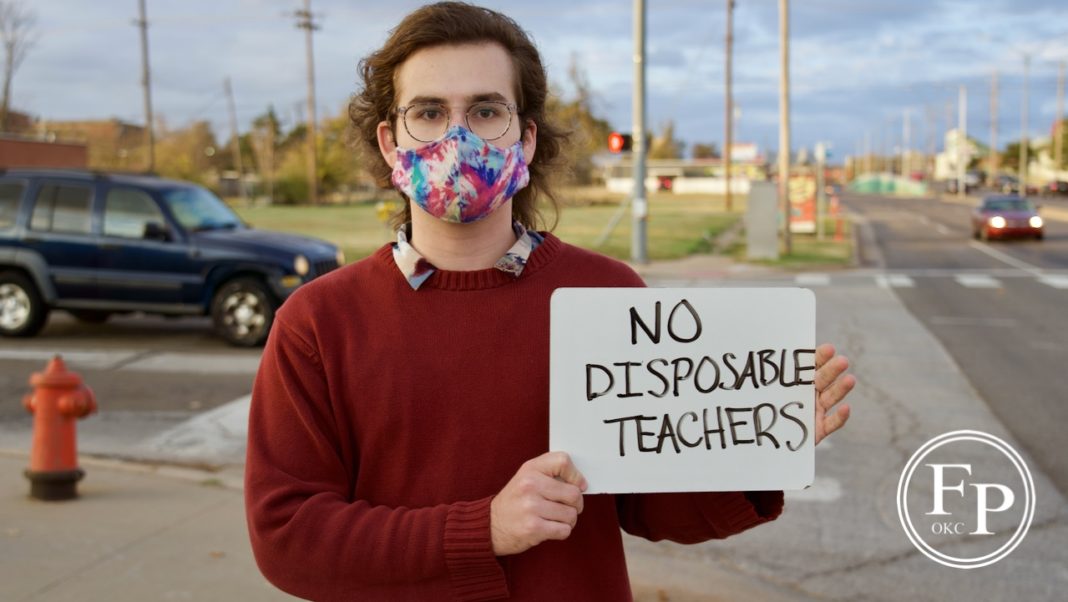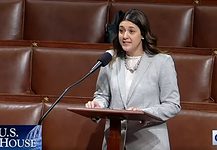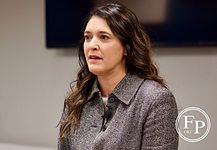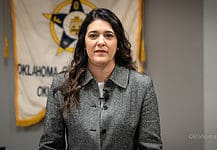Last Updated on November 12, 2020, 8:06 PM | Published: November 12, 2020
Oklahoma City Public Schools’ decision this week to resume in-person learning as COVID-19 cases spike was an act disengaged from reality, as though superintendent Sean McDaniel announced the decision on a Zoom call from President Donald Trump’s brain. Even with the concerns of parents, teachers, and board members being voiced at Monday’s school board meeting, McDaniel would not be dissuaded.
McDaniel argued that children are facing abuse and hunger due to the school’s social distancing and home learning efforts. “I know for a fact that children are being abused,” he said.
I will not dispute that. According to Feeding America, 20 percent of children in Oklahoma face food insecurity on a regular basis, and in 2017, Oklahoma State Department of Health reported that 16 in 1,000 children in Oklahoma are abused, which is seven more than the national average.
Opinion by George D. Lang
At the same time, McDaniel used this argument as a political cudgel to silence opposition at a time when parents, teachers and children are understandably alarmed about the rising coronavirus cases in Oklahoma. Administrators should be sufficiently nimble in their ability to address all challenges currently facing OKCPS teachers and families without betraying their trust.
Everyone is making hard decisions over how to safeguard themselves and their families, and the OKCPS decision introduces a new element of uncertainty into already complicated lives. In March, students began remote learning at a time when new daily rates of COVID-19 cases in the state could be counted in dozens or less. On Thursday, Oklahoma faced 2,357 cases and the highest seven-day rolling average since the pandemic began, but children are now in classrooms. This makes no sense.
The idea that a child must finish their secondary education at age 18 feels arbitrary in these circumstances. Why must we ensure that our children finish school on time when doing so could threaten their lives or permanently impact their health? As a community and maybe as a nation, we should ask ourselves whether it is more important to send children to school in a pandemic to maintain educational status quo or to keep them safe.
In the past 24 hours, COVID-19 caused me to change three different immediate plans. On Wednesday night, my wife and I decided we could no longer go forward with Thanksgiving plans in which our family, her elderly parents and close family members from Lewisville, Texas, would meet at a central, open-air location for dinner. With Texas COVID-19 cases reaching 1 million and Oklahoma cases at an all-time high, this suddenly seemed like an unnecessary risk.
On Thursday morning, we received an email that one of our son’s classmates in a private school tested positive for coronavirus. He attends school in person three times a week in an open-air environment, but despite the relative safety of going to class in a socially distanced and unenclosed place, his school returned to online attendance for at least four days for safety measures.
Later that day, I learned that some key employees at one of the publications for whom I write tested positive, and plans to pick up something from their offices had to be rethought. Because both my wife and I have preexisting conditions that make contact with the virus particularly perilous, we took these issues as a matter of course — things to avoid in order to stay alive.
I also recognize that I have a degree of privilege that others do not have in this situation. I was working from home before COVID-19, and I will likely do so after we have it under control, and not everyone has the means with which to live a hermetically sealed lifestyle.
But OKCPS’ decision is an elective one that assumes considerable risk for everyone involved. It tells all who reside in the district that administrators have in mind an acceptable level of disease and, possibly, death. In order to fight this pandemic, we cannot will ourselves into some semblance of normalcy. If we want our lives to return to normal, we must accept life being abnormal for as long as it takes.
George Lang has worked as an award-winning professional journalist in Oklahoma City for over 25 years and is the professional opinion columnist for Free Press. His work has been published in a number of local publications covering a wide range of subjects including politics, media, entertainment and others. George lives in Oklahoma City with his wife and son.











